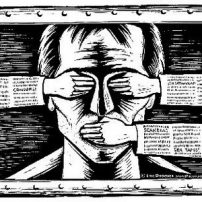
The “mafia” and the freedom of expression
JUDGMENT
Verlagsgruppe Droemer Knaur GmbH & Co. KG v. Germany 19/10/2017 (no. 35030/13)
SUMMARY
Presenting a person and mentioning him in a book as a member of the mafia. The publishing house was compelled to pay compensation. Invokation of the freedom of expression by the publishing house. No violation.
PROVISION
Article 10
PRINCIPAL FACTS
The applicant company, Verlagsgruppe Droemer Knaur GmbH & Co. KG, is a prominent German book-publishing house based in Munich. The case concerned proceedings in which it had been ordered to pay damages to a person who was presented in a book the company had published as a member of the mafia.
The book, entitled “Mafia” and written by the well-known author Petra Reski, was published in September 2008. It was reprinted in several editions and also published in Italy. Its subject were the Mafia’s ties to Germany and its inner structures. On two pages, the book referred to an Italian national residing in Germany (S.P.) by his full name. It stated, in particular, that S.P. was a presumed member of the ‘Ndrangheta and that he had allegedly been involved in a murder.
Following the publication of the book, S.P. brought court proceedings seeking an injunction against the dissemination of those passages. In November 2008, the Munich Regional Court issued the injunction. It held in particular that, while there was a public interest in reporting about organised crime, the author had acted in breach of her journalistic duties. She had relied on internal reports of the Federal Office of Criminal Investigation, as regards S.P.’s presumed membership of the ‘Ndrangheta, which constituted an insufficient source for her allegations, since the reports were not intended for publication and she had exaggerated the degree of suspicion described in these reports. The investigating authorities themselves had not come to the conclusion that there was sufficient evidence of an offence having been committed by S.P. The company’s appeal was dismissed in April 2009.
In the main proceedings, the Court of Appeal eventually ordered the company to pay damages in the amount of 10,000 euros. It reasoned that the injunction was not sufficient redress for S.P., as it was not an adequate means of reaching the readers of a book that had already been published. A further appeal by the company was dismissed and, in November 2013, the Federal Constitutional Court refused to admit its constitutional complaint.
THE DECISION OF THE COURT
The company complained that the judgment ordering it to pay damages was in breach of its rights under Article 10 (freedom of expression).
No violation of Article 10(echrcaselaw.com editing).


